What I Wish I Would Have Known: A Millenial’s Tale
By Mathis V. Kennington, Ph.D., LMFTA
And here I was thinking all I needed were some clever tweets, a great website, maybe a Tumblr page, and an active blog, and I’d have clients banging down my door competing with each other to get on my calendar. After all, this is the way the world communicates now, right? We have exchanged handshakes for pokes and phone calls for texts. But for all of our culture’s posturing about the value of social media and search engines, we don’t put a lot of stock into helping professionals we find on Yelp. After nearly seven years of practice and two degrees later, I’ve just realized that no social media campaign can compare to the power of a friend, relative, or family physician believing in your services enough to refer someone to you. Unfortunately, my generation (those of us who just got out of college before social media conquered the world) and those younger than us will enter markets saturated with helping professionals under the assumption that the quality of their social media should correlate with the vibrancy of their business. But this is the coldest and limpest of lies. In my time as an ACU student, I gained the best family therapy education you can receive in the nation. Even after a doctoral education and rubbing elbows with family therapy students from across the country, I still believe this. Yet, for all my education, I was ignorant about how to start a private practice. The journal articles into which I was immersed were impotent to help me. Thus, I relied on what I knew: social media, because that is where the people are. Facebook, Twitter, Tumblr, Reddit, Linkedin, and on and on we go. I was and am still proud of what I crafted, yet all my pride did not change the fact that I received scant little return for my time. What was going wrong? I fashion myself a rather intuitive self-starter, yet all of my ideas and fervor limited my capacity to reach clients. I told my story, but was anybody listening?
It was not until about six months later (I can be quite dense) that I realized that maybe I was going about this whole thing the wrong way. So, like a good observer, I studied the habits of successful therapists whose practices boomed with clients. What I discovered was just what I needed to kick-start my millennial mind out of social media complacency. Despite my years of training to become a relational expert, I failed to activate the most basic of therapeutic truths into my marketing plan. Referrals are given where trust is earned.
Warm referrals thrive within the community, from a trusted professional, a health provider, a family attorney, or a local school counselor. Where social media provide introductions, community referrals give depth and safety. Shocking? Not really. But it was enough to make me realize that this private practice thing is as much about my integrity outside my office as in it. To be successful is to proclaim your message authentically, which demands more than social media are equipped to handle. Because as a person dedicated to the professional care of others, my task is to reach out and touch someone who might be scared to make contact.
This required that I be in the community. Not as a walking billboard, but really IN the community. I had to volunteer, join Meetups, give talks, ask for clients, get rejected, ask again, get rejected again, go somewhere else, ask for clients, get a client, say thank you, and repeat. People needed to know who I was, which meant that even after years of classroom education, I had to wait a little longer. My generation doesn’t like that. We like now. We like immediate. And if we stroll into this profession with that attitude, our community members will smile at our clever Facebook posts as they hand their referrals to the computer illiterate professional who has taken the time to make sure you know what she is about.
Now don’t get me wrong, social media are important. Your online presence buffers your credibility. Social media are trying to catch up by adapting to the need to actually be socially connected, rather than disjointed individuals projecting perfect lives. But for now, the most valuable way to build a solid clientele is a steady diet of patience, persistence, and authentic connection with community members. If you want to create a business that asks clients to give so much of themselves, then you should expect to be vulnerable enough to be seen, really seen, within the community as a behavioral and relational health expert. It is an exercise in authentic vulnerability, courage, and persistence. Sound familiar?
Dr. Mathis Kennington is a 2009 graduate of ACU’s MFT Program. He completed his Ph.D. at Virginia Tech in 2013. He is currently a family therapist associate in Austin, TX. Visit his website at www.mathiskennington.com/about.htm

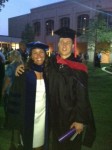
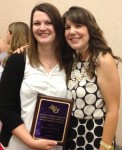
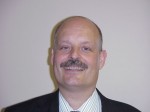
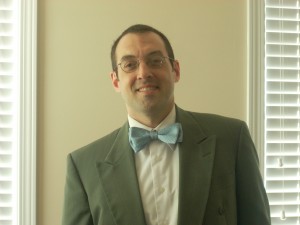
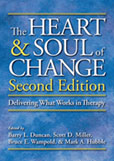 ACU’s Department of Marriage and Family Therapy, Department of Psychology, and University Counseling Center are working in conjunction to host a one-day workshop with Barry Duncan, PsyD, on September 3, 2010. Dr. Duncan is the Director of the
ACU’s Department of Marriage and Family Therapy, Department of Psychology, and University Counseling Center are working in conjunction to host a one-day workshop with Barry Duncan, PsyD, on September 3, 2010. Dr. Duncan is the Director of the